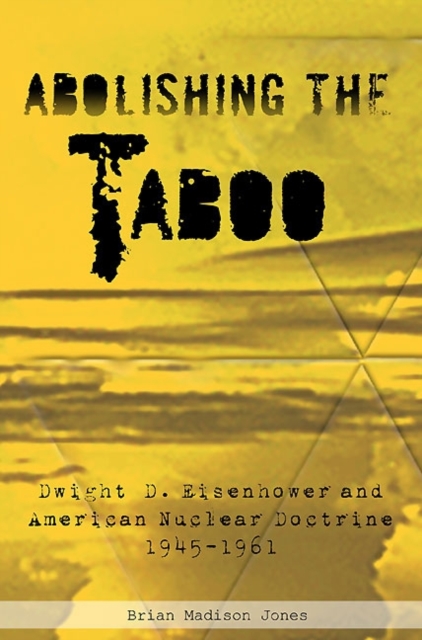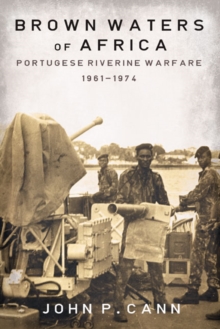
Abolishing the Taboo : Dwight D. Eisenhower and American Nuclear Doctrine, 1945-1961 Paperback / softback
by Brian Madison Jones
Part of the Helion Studies in Military History series
Paperback / softback
Description
Abolishing the Taboo takes a new look at the integral role played by Eisenhower in the creation of a new nuclear creed for the United States during the Cold War.
The narrative centres on Eisenhower, the man, the general, and the president, with specific focus on his intellectual and political understanding of nuclear technology in general and nuclear weapons in particular. Abolishing the Taboo presents an analysis of Eisenhower's thinking about nuclear weapons since 1945 as well as a survey of nuclear developments from 1953-1961 and evidences how he came to believe that nuclear weapons and nuclear technology were a permissible and desirable assets to help protect U.S. national security against the threat of international communism.
Through an analysis of Eisenhower's words and actions, Jones- one of the leading Eisenhower historians - shows how and why he sought to make nuclear weapons as available, useful, and ordinary for purposes of national security as other revolutionary military technology from the past, such as the tank.
Jones describes Eisenhower's assessment of the role and value of nuclear technology as sincere, and pragmatic, but also simplistic, uneven, and perilous and explains that Eisenhower consistently advanced his view that strength through nuclear technology was possible, necessary, and sustainable.
Eisenhower sought to reverse the perception that nuclear weapons were inherently dangerous by advocating steadily and consistently for the proper and acceptable use of nuclear technology to contribute to the safety of the republic.
The president conceived policies such as the New Look, massive retaliation, Project Plowshare, and Atoms for Peace in part to convince the American public and the international community of the U.S.'s genuine desire for peace.
Jones concludes that Eisenhower, more than any other single figure, expanded the role played by nuclear technology in American life and became the primary architect of the new American nuclear creed.
Information
-
Only a few left - usually despatched within 24 hours
- Format:Paperback / softback
- Pages:176 pages, 15 photos
- Publisher:Helion & Company
- Publication Date:30/06/2011
- Category:
- ISBN:9781907677311
Other Formats
- Hardback from £35.09
£29.95
£22.29
Information
-
Only a few left - usually despatched within 24 hours
- Format:Paperback / softback
- Pages:176 pages, 15 photos
- Publisher:Helion & Company
- Publication Date:30/06/2011
- Category:
- ISBN:9781907677311










